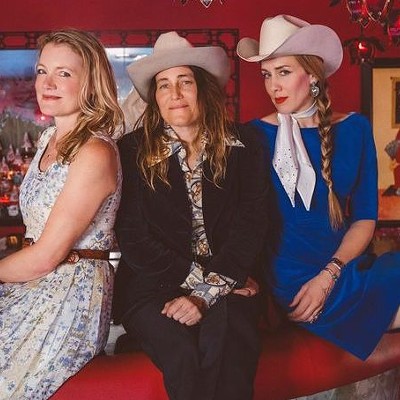Having the same name and being in the same trade as John and Alan Lomax, I get questions like that a lot. And yes, I am related to both of them, but neither was my grandfather. John Avery Lomax was my great-grandfather, and Alan Lomax was my grandfather’s brother. John Avery Lomax Jr. was my grandfather, and though he is not as widely remembered as his father and brother, his contributions to American music and that of Houston deserve remembering in their own right.
Since today is the 100th anniversary of his birth, at the risk of great self-indulgence (hell, isn’t that what blogs are for?), I’d like to post a little something about him.
I barely knew him. “Pops,” as both he and my dad, John Lomax III, called him, passed away before I went to kindergarten. About all I can recall are dream-like swatches of vague scenes in and around his house on Vanderbilt Street in West University. I seem to recall him dragging me and my bare ass out of a fire ant bed I had sat in when I was about two. What I mainly remember is a presence, a hyper-masculine magnetism he had. Right to the end of his days, he played handball several times a week with men generations younger, and he had the muscles on his 6’1” frame to prove it.
And he would sing. He knew literally hundreds of folk songs by heart, everything from the cattle camp classics and field hollers his brother and father collected to pop songs of the Depression to college fight songs and dirty ditties to country hits of the 1940s to the blues. He recorded an album for Folkways Records in 1956 that can be downloaded track-by-track or whole here. Here’s a sample, an mp3 of “Texian Boys." Another album he had a hand in, The Unexpurgated Folk Songs of Men, is now something of a cult classic. You can here the two portions of the recitation “Change the Name of Arkansas,” his principal contribution to that profanely hilarious album on these two mp3’s. (The first is intro to the second.) My dad recalls that the Unexpurgated sessions were one of the very few times he ever saw Pops get drunk.In a live setting, he would stand on a stage and bellow in his bass-baritone a cappella or accompanied any and all of these types of songs at meetings of the still-extant Houston Folklore and Folk Music Society, which he founded in the 1950s. In the first edition of The Rolling Stone Encyclopedia of Rock and Roll, he’s there on the very first page, singing with his friend Mance Lipscomb at a “hootenanny” here in Houston.
Music was a sideline for him. Early on in his life, his father pegged him as “the worker” of his four children. Alan was anointed as the smart one who would carry on the Lomax field collecting work, and their sister Bess was the singer and Shirley the flapper girl. So after accompanying Alan and his father on one field collecting trip, Pops went to work, first in banks, and later, after coming to Houston around the outbreak of World War II, as a real estate developer. (He built Victory Gardens, a subdivision in Acres Homes.)
And while he was not on the trip on which Leadbelly was discovered, it might never have happened without him. The year leading up to that trip was not a good one for John Sr. His wife, Pops’s mother Bess, had died. The Depression was dragging on and on, and John Sr was at best underemployed. He was in his late 60s and his health was flagging. He lapsed into moping about his Dallas home, likely suffering from what would now be diagnosed as clinical depression. Pops knew that his father was at risk of joining his father in an early grave. He urged him to take Alan and hit the road again. They did, and the rest is history.
Around that same time, he met his wife, Margaret “Mimi” Marable, a college-educated woman from north Texas who shared his work ethic, his forward-looking racial views, and his love of music. After the war, in which Pops served as a Lieutenant in the Navy (he was a swim instructor based in upstate New York), the family settled in Houston. My dad was born on the naval base in New York, and a few years later their son Joseph was born.
At some point in the ‘50s, Pops met Lightnin’ Hopkins, and a long-term friendship was born. Pops would pal around with Lightnin’ in the Third Ward – shoot pool and drink beer and tell stories. Hopkins and his girlfriend Antoinette Charles would visit Pops and Mimi at their home in West U, scandalizing the neighbors. Pops also served intermittently as Lightnin’s manager/agent, and is said to have been the only white man the deeply suspicious Hopkins ever trusted.
Pops didn’t romanticize Hopkins. Far from it. In the June issue of Texas Monthly, an article about Hopkins recounts some of Pops’s gripes about the bluesman. Lightnin’ hated to fly, with good reason. His mother had seen a passenger liner crash en route to Dallas in the 1950s and her lurid descriptions of the carnage filled Hopkins with dread enough to last a lifetime, but Pops at long last was able to persuade him to board a plane and go to California. My father remembered that Hopkins stuffed all four pockets of a suit jacket with cherry brandy and got aboard. Texas Monthly’s Michael Hall picks up the story.
[E]very show had gone well except for one, and Lightnin’ complained bitterly and took it out on Lomax, who later wrote in a letter, "I couldn’t help but recall Mark Twain’s description of one of his characters: 'He had every quality of a dog except gratitude.'"
Nevertheless, Pops continued bringing Hopkins to Houston folk gatherings, and also Mance Lipscomb. There, a couple of young, green singers who went on to some renown heard the blues first-hand for the first time. A bio of Guy Clark at thisistexasmusic.com put it like this:
Clark attended college in Houston, but he was drawn more to the city's burgeoning music scene than to its academic offerings. Specifically, he was attracted to the Houston Folklore Society, headed by John Lomax, Jr., son of the legendary folk music archivist.Van Zandt once told me that Hopkins and Lipscomb weren’t the only reasons they enjoyed these shows. Pops himself was no slouch. Clark told me of one time he dropped acid before attending one of his gatherings, and Pops came on stage with a huge stump and an axe. These were props for Pops’s reading of the Leadbelly standard “Take This Hammer.” Clark recalled that Pops would sing a line – “Take this hammer” – and then bring the axe down on the stump – ka-chunk – between every line. Clark said wood chips were peppering the audience, some fist-sized, hitting people in the face. “Take this hammer – ka-chunk – carry it to the captain – ka-chunk – tell him I’m gone.” One wonders about what an insurance underwriter would think about a folk gathering like that."They had gatherings in a park once a week," he says, "just 30 or 40 people sitting around playing songs."
It was through such gatherings and the contacts made there that Clark met Texas bluesmen Mance Lipscomb and Lightnin' Hopkins, as well as young folk singer Townes Van Zandt. The friendship between Townes and Guy would become the stuff of legends.
One of my strongest memories of him I have is the last time I saw him alive. He came over to see me and my maternal grandparents and sat in our den and sang for us for hours. By that time, he had suffered a stroke which snatched away much of his short-term memory, but he didn’t learn the songs he loved to sing yesterday or last week anyway. One of the songs he sang, one of the songs he always did love singing the best, was “John Henry,” which is partially the reason I named my son that 22 years later.
But I’m far from the best person to remember Pops. Those of you who remember him better are encouraged to leave your stories in the comments. – John Nova Lomax






